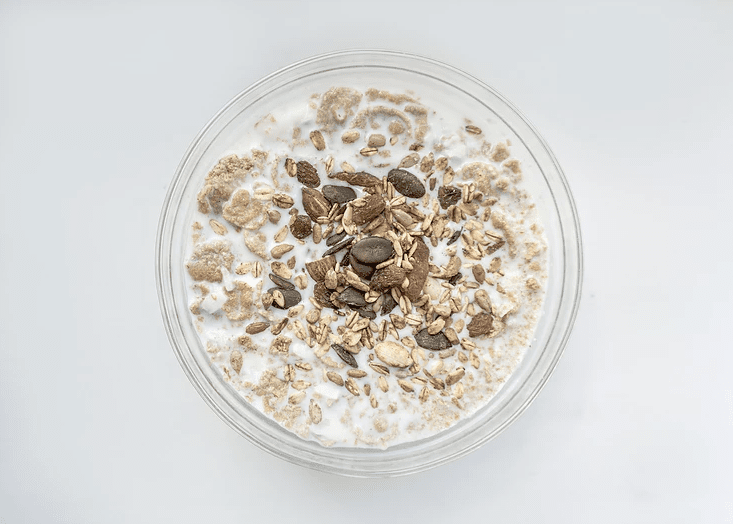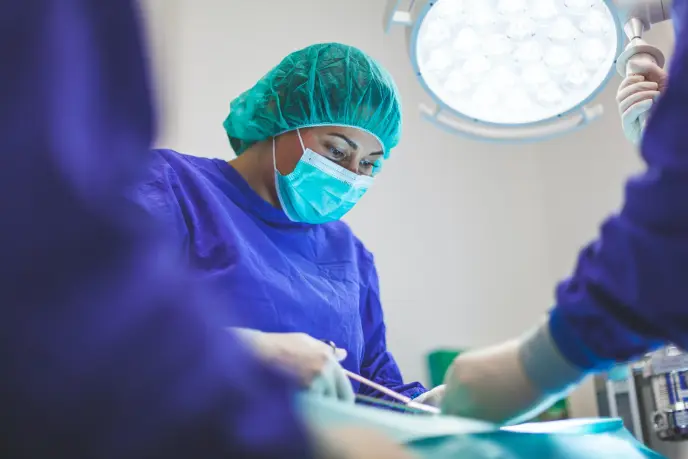You may be thinking, whoah, not another long and complicated name for something not quite right with my menstrual cycle! And you would be right!
This blog is for those ladies out there diagnosed with hypothalamic amenorrhoea (HA), or for those that may suspect that they may have it and want to know more about it.

What is Hypothalamic Amenorrhoea (HA)?
Hypothalamic amenorrhoea, also known as functional hypothalamic amenorrhoea (FHA) or hypothalamic hypoestrogenism is a form of chronic anovulation (i.e. long-term issues with not ovulating) that affects women of reproductive age. However, it is a bit different to other conditions that result in issues with ovulation like PCOS.
Let’s break down what the word means, amenorrhoea, is the absence of a menstrual cycle. And hypothalamic refers to the hypothalamus an important structure in the brain that produces a number of hormone, including gonadotropin-releasing hormone (GnRH). GnRH signals the production of other hormones like follicle-stimulating hormone (FSH) and luteinizing hormone (LH) to help eggs mature and release. It also aids in the production of oestrogen by extension. If the hypothalamus stops the production of GnRH, the amount of FSH, LSH and oestrogen are all reduced which therefore results in ovulation and menstruation ceasing, which is obviously critical for fertility but also general health and wellbeing too.

HA is tricky to diagnose as it can be easily confused with PCOS, and sometimes some people may have both! HA is often associated with stress, weight loss and excessive exercise or a combination, so often it is seen amongst recreational athletes who do not consume adequate calories each day. Or even those who were previously very active or under a lot of stress may present with this later in life. Especially those who restrict carbohydrates and/or fats from their diet.
All other causes of anovulation and amenorrhoea need to be excluded before you get a HA diagnosis, a process similar to irritable bowel syndrome (IBS). If you suspect this may be the case for you, get your GP to test your LH, FSH, oestradiol, androgens, insulin levels and blood glucose levels and get an ultrasound done. Then head to a gynaecologist or endocrinologist for interpretation of these results.
What are the consequences of HA going untreated?
HA has a number of health consequences:
- Troubles conceiving due to lack of ovulation and menstruation
- Compromised bone health due to low oestrogen levels, as oestrogen has a protective effect on bones.
- Weight loss and even being underweight, it is known that low body fat reserves can cause ovulation to cease, and can impact the ability to conceive.
Sometimes, the oral contraceptive pill (“the pill”) is used to help regulate menstrual cycles, however, this can, in fact, mask the problem and if inadequate calorie or energy intake continues, this also does not help protect the bones of women.
Read more about why women need to pay attention to their bone health much earlier than we think.
What lifestyle changes help manage HA?
The ultimate goal in HA management is to re-establish regular menstruation and ovulation, this is often complicated when PCOS is also going on at the same time. However, the good news is that a lot of the management for HA can be done through lifestyle changes when supported by a multi-disciplinary team which may include your medical team (GP, gynaecologist and/or endocrinologist), dietitian and psychologist. Psychology may need to be involved when struggling to improve nutritional intake due to disordered eating patterns.
The key lifestyle strategies for managing HA include:
- Increasing overall energy intake from food, this may mean increasing meal and snack frequency and/or portion size gradually, increasing fat and/or carbohydrate intake in line with needs and guidelines, this is especially important if weight gain is required.
- Introducing adequate low glycaemic index (GI) carbohydrate foods such as brown rice, wholegrain pasta, sweet potato, quinoa, oats, milk and fruit to ensure dietary adequacy for activity levels and general health and wellbeing. The amount will look different for everyone!
- Incorporating healthy fats at main meals: olives, avocados, extra virgin olive oil, nuts & seeds, nut butters, salmon or other oily fish a couple times a week to ensure there is adequate fat intake to make reproductive hormones in the body.
- Reducing high intensity exercise and move towards more gentler forms of activity such as pilates, yoga, gentle walks. It may also mean incorporating rest days from physical activity if training daily or most days of the week at a high intensity.
- Ensuring adequate calcium intake from dairy and non-dairy foods for bone health, combined with vitamin D. Get your levels checked and your bone mineral density checked with a scan for monitoring. Discuss with your doctor or dietitian if a supplement would be appropriate for you.
- If trying to conceive in the next 3-6 months, ensure taking a prenatal multi-nutrient supplement and an omega-3 (Why omega-3s? Check out this blog post).
- Seeing a psychologist for cognitive behaviour therapy to help manage disordered eating surrounding food. HA can be caused and driven by an obsession with being healthy in terms of lifestyle which can go too far, popularly known as the unofficial eating disorder “orthorexia”.

It is important to seek help from a multi-disciplinary team of medical, nutrition and mental health professionals to get the best outcomes for women with HA and for those that suspect this may be an issue for them, to go and get it checked out.
If you are looking for a dietitian on your HA care team that can assist with making these changes, apply for one-on-one support with us and learn more about our Recovery Your Period Program here.
Resources
Health care professionals can read more about treating HA using the latest clinical practice guideline here.
- Jean Hailes talks about amenorrhoea more generally on their website.







